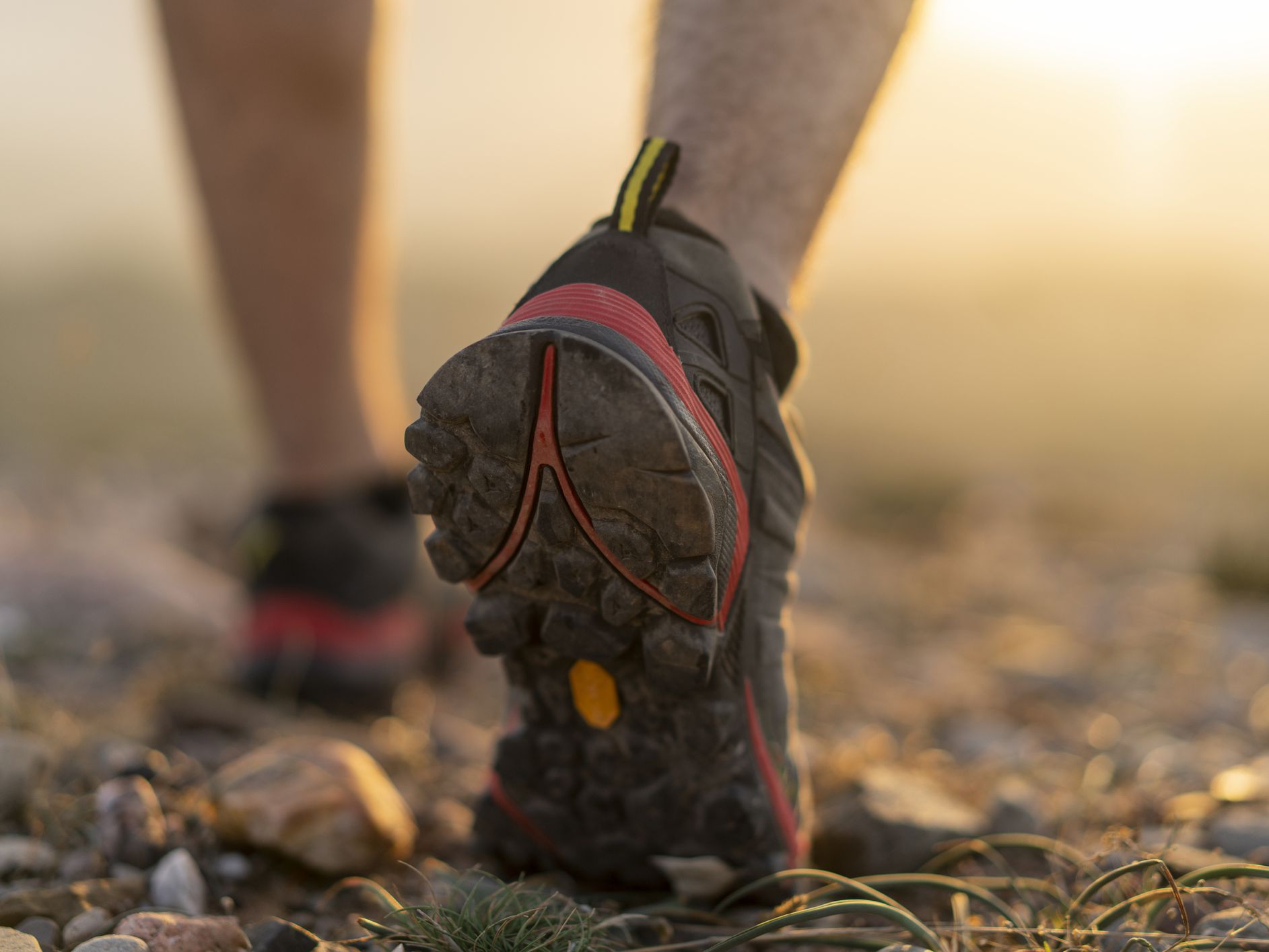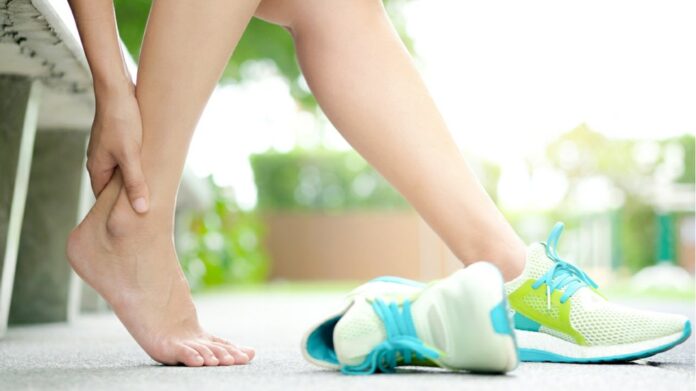Plantar fasciitis can be quite painful and incapacitating if you have it. However, there is a solution: wearing the right kind of shoes. Not only can the right shoes help reduce the pain of plantar fasciitis, but they can also prevent further damage to the feet. In this blog post, we’ll discuss why wearing good shoes for plantar fasciitis is so important and how you can find the right pair of shoes to say goodbye to foot pain.
Good Shoes For Plantar Fasciitis Make All The Difference.
You already understand how painful and incapacitating plantar fasciitis can be if you have it. But wearing the right shoes can be a huge part of managing and reducing pain. That’s why it’s essential to choose the right shoes for plantar fasciitis – good shoes can make all the difference.
There are a few features that make a great shoe for plantar fasciitis. To start, they should provide ample arch support. It is essential if you have flat feet. Shoes with arch support your foot more evenly and take pressure off the plantar fascia. It can help prevent plantar fasciitis from developing or worsening.
In addition, you should choose shoes that fit properly and don’t change how your feet move naturally. Shoes should also have a cushioned sole and a supportive heel counter. Only buy them if you feel comfortable in a certain pair!
Finally, consider adding arch support to your shoe’s sole, as this can provide extra cushioning and reduce stress on your plantar fascia.
In conclusion, choosing good shoes for plantar fasciitis can make a huge difference. By providing arch support, wearing shoes that fit properly and don’t change how your feet move, and adding arch support to your shoe’s sole, you can take pressure off the plantar fascia and potentially reduce pain.
Shoes can help prevent plantar fasciitis.
When you have plantar fasciitis, it is essential to wear shoes that provide the right support for your feet. The best shoes for plantar fasciitis should provide adequate cushioning and arch support and fit snugly around your foot without being too tight or loose.
Cushioning: Shoes with good cushioning are key for preventing and managing plantar fasciitis. Shoes with shock-absorbing midsoles help reduce the strain on the plantar fascia by minimizing impact force as you walk. It helps to alleviate pain and discomfort.
Arch support: Shoes with arch support can also help to prevent plantar fasciitis. If you have flat feet, arch support can help to redistribute weight more evenly and take pressure off the plantar fascia. Some shoes have removable insoles that can be swapped out to accommodate different arch heights.
Proper fit: It’s essential to ensure your shoes fit properly to provide the right level of support and comfort. Shoes that are too tight or loose can cause strain and discomfort on the feet. Try on several pairs of shoes before settling on one, and make sure you feel comfortable wearing them.
Choosing the right shoes for plantar fasciitis is an essential step in helping to prevent and manage pain caused by this condition. Make sure to look for shoes that provide adequate cushioning and arch support and fit properly. Doing so will help you get back on your feet and move again with less pain and discomfort.
Wear Shoes That Fit Properly And Don’t Change How Your Feet Move.
When choosing shoes for plantar fasciitis, it’s vital to get shoes that fit properly and don’t change how your feet move. Shoes should be comfortable, provide the necessary arch support, and be made of breathable materials.
Regarding shoe sizes, getting a shoe that fits snugly but is tight enough is essential. If a shoe is too small, it can cause your foot to be cramped and uncomfortable. On the other hand, if a shoe is too big, it can cause your foot to slip around inside the shoe, which can be painful and even cause blisters. Additionally, shoes that are too big can cause your foot to be more prone to pronation, aggravating the pain associated with plantar fasciitis.
Finally, you’ll want to ensure the shoes you purchase don’t change how your feet move. For example, high heels can cause your feet to point downward and lead to plantar fasciitis symptoms. Additionally, shoes with a high arch or stiff sole may cause problems. Choosing a shoe that won’t force your foot into an unnatural position is essential, as this can worsen your symptoms.
Ultimately, wearing the right type of shoe can help you manage the pain associated with plantar fasciitis. Make sure you take the time to find the right pair for your needs so you can enjoy your active lifestyle with less discomfort.
3 Features Of Good Shoes For Plantar Fasciitis
- Heel Counter: A good shoe for plantar fasciitis should have a strong heel counter to provide stability and reduce strain on the plantar fascia. The heel counter should fit comfortably around the back of the heel, but it should be rigid enough to keep your foot from slipping out of the shoe when walking or running.
- Arch Support: People with plantar fasciitis often experience pain in the arch of their feet. Choose shoes with good arch support to reduce the pressure on the plantar fascia. Shoes with built-in arch support or an orthotic insert can help relieve pressure on the plantar fascia.
- Shock Absorption: Shoes that absorb shock are essential for those with plantar fasciitis. Look for shoes with cushioning in the midsole and supportive soles that provide extra cushioning to help absorb shock when you walk or run. A good cushioning material such as EVA foam will help provide cushioning and shock absorption.

Add Arch Support To Your Shoe’s Sole If You Have Flat Feet.
Adding arch support to your shoe’s sole is essential if you have flat feet. Flat feet can lead to various issues, such as plantar fasciitis, Achilles tendonitis, and shin splints. Arch supports help to reduce the risk of these conditions by providing more even support to the foot.
When looking for shoes, try to find those with a contoured insole with a built-in arch. This will help to evenly distribute your body weight throughout the foot, reducing strain on the arch. You can also purchase arch support inserts or orthotics specifically designed for those with flat feet.
Choosing shoes with a good heel counter and stiff sole is also essential. It helps to reduce strain on the foot’s arch by supporting it and reducing flexibility.
Remember, wearing shoes with good arch support is essential if you have flat feet, so be sure to consider this when selecting your shoes. Doing so can help you stay comfortable and injury-free.
Choosing Good Shoes For Plantar Fasciitis Provides Support To Your Foot More Evenly.
When choosing shoes for plantar fasciitis, look for shoes with good arch support, cushioning and stability. Shoes with arch support help reduce pressure on the feet and provide comfort. Cushioning helps to absorb shock and provide cushioning, while stability helps to control foot movement and prevent overpronation.
Make sure it fits properly to get the most out of your shoe. Your feet should not be cramped and have enough space in the toe box. If the shoe is too tight, it can cause pain and pressure points. Additionally, ensure you have arch support to prevent overpronation and other foot injuries.
Finally, don’t forget to add arch support to your shoe’s sole if you have flat feet or a high arch. This will help to distribute weight evenly along the foot and ensure a more comfortable fit. It is also essential to wear shoes that don’t change the way your feet move, as this can lead to further problems.
Good shoes for plantar fasciitis provide support and comfort for your feet, helping to reduce pain and prevent further injury. Be sure to invest in a good pair of shoes to ensure you get the most out of them.
Conclusion
Shoes for plantar fasciitis can make a world of difference in providing comfort and reducing pain. If you suffer from this condition, choosing the right type of shoe can help prevent it from worsening. Make sure to look for shoes that fit properly, provide arch support and allow your feet to move naturally. With the right type of shoes, you can say goodbye to foot pain and enjoy walking easily.
Related Websites
Articles on Blogshunt
Articles on Blogseu
Articles on Blogspeoples
Articles on Thebigblogtheory
Articles on Allcityforums

